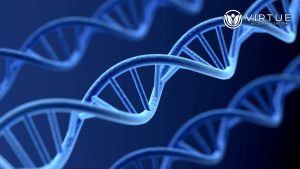Key Takeaways
- Many people with PTSD turn to DXM (found in cough medicine) to numb their pain, but it often makes things worse.
- Recognizing how trauma and substance use connect is key to healing.
- A safe, supervised medical detox in Sun City West helps people safely get through withdrawal.
- Trauma-informed, integrated PTSD treatment programs that address both issues work best.
- Detox combined with therapy gives people new tools for a healthier, lasting recovery.
Introduction
Living with PTSD is tough. Imagine feeling trapped by memories that won’t go away, or feeling anxious and numb all at once. It’s no wonder some people try to ease that pain with something easy to get, like cough medicine that contains DXM. At first, DXM might seem like a relief because it makes you feel disconnected from your pain.But here’s the catch: DXM misuse often ends up making PTSD symptoms worse, not better. People get stuck in a cycle where the drug only masks the pain temporarily but leaves behind bigger problems. That’s why a solid PTSD treatment program has to address both the trauma and any substance misuse. It starts with a gentle, medically supervised detox to help someone safely step away from DXM.
What is the connection between DXM abuse and PTSD?
You might be wondering, “Why would someone misuse cough syrup?” For people living with PTSD, the answer is often about finding relief, any relief, from overwhelming emotions. DXM’s effects can make you feel distant or detached from your pain, even if only for a little while.But this escape comes at a price. Using DXM too much interferes with the brain’s ability to heal from trauma. It can cause mood swings, make anxiety worse, and affect memory and focus. That’s why PTSD symptoms can feel even more intense when DXM is involved.Knowing this helps doctors and counselors create treatment plans that take both trauma and substance use into account. If you want to understand PTSD better, the National Institute of Mental Health has helpful information that’s easy to follow.Why is medical detox so crucial for those struggling with DXM abuse and PTSD?
Trying to quit DXM alone can be hard, especially when your mind and body are already on edge from PTSD. Withdrawal can bring on uncomfortable physical and emotional symptoms, making it feel impossible to move forward.That’s why a medically supervised medical detox program is so important. It offers a safe place where doctors and nurses can help manage withdrawal symptoms and support someone through those tough first days.For someone with PTSD, this kind of care is a game-changer. Detox without support can make trauma symptoms worse, increasing anxiety or triggering flashbacks. Getting through detox safely means patients can focus on healing, not just surviving.If you want to know more about why detox is a vital first step, this article on drug detox explains it well.
How do trauma-informed PTSD treatment programs support recovery from DXM abuse?
Once detox is over, healing begins. Trauma-informed treatment programs know that trauma and addiction are connected, so they treat both together.These programs use therapies like cognitive behavioral therapy (CBT) to help people gently work through their trauma. They also teach new ways to cope without relying on substances like DXM.What makes trauma-informed care special is how safe and supportive it feels. When people feel understood and not judged, they’re more willing to face painful memories and try new coping skills.If you want a simple explanation of how PTSD and substance use relate, this YouTube video is a great place to start.Why is integrated care so important for lasting healing?
Trying to treat PTSD and addiction separately is a lot like trying to fix one half of a broken car. It just doesn’t work well.Integrated care means combining detox, therapy, and ongoing support, all tailored to the individual’s needs. This kind of care sees how trauma and addiction fuel each other and addresses them both head-on.Virtue Recovery Sun City West uses this integrated approach. It’s supported by research too; studies like the one in Frontiers in Psychiatry and reviews on PubMed show how powerful combined treatment can be.Can Effective PTSD Treatment Programs Help Those Recovering from Flakka Abuse?
Effective PTSD treatment programs can significantly aid those recovering from flakka abuse. By addressing underlying trauma and mental health issues, these programs provide crucial support. In Phoenix, specialized services incorporate tailored approaches, including anxiety treatment for flakka recovery in phoenix, helping individuals regain control over their lives and promote lasting healing.
Conclusion
DXM abuse is often overlooked, but it’s a real roadblock when healing from PTSD. The good news is that recovery is possible with the right help. A full PTSD treatment program that starts with a safe, supportive medical detox in Sun City West sets the stage for lasting change.If you or a loved one is struggling, know there’s hope. Virtue Recovery Sun City West offers caring, integrated treatment in Phoenix, Mesa, Tempe, and Scottsdale, designed for people facing these tough challenges. To get started, call 866-485-1657 today.FAQs
What is dextromethorphan (DXM) abuse?
DXM is a cough medicine that can be abused in large amounts, which can make you feel disconnected and cause hallucinations.This kind of misuse can make you addicted and make your mental health worse.What happens to PTSD symptoms when DXM is abused?
Using DXM in the wrong way can make anxiety, mood swings, and memory problems worse, which makes it harder to deal with PTSD symptoms.Why do you need to go through medical detox before trauma therapy?
Detox helps your body and mind get used to not using drugs safely, which makes it easier to focus on healing from trauma.Can PTSD be treated sufficiently if substance abuse isn’t dealt with?
Usually not. Substance misuse often keeps trauma symptoms alive, so both need to be treated together.What are trauma-informed PTSD treatment programs?
These programs create safe, supportive environments where trauma and addiction are treated at the same time using therapies proven to help people heal.Resources
- National Institute of Mental Health. Understanding Post-Traumatic Stress Disorder. 2023. https://www.nimh.nih.gov/health/topics/post-traumatic-stress-disorder-ptsd
- Najavits, Lisa M. Substance Use in PTSD Patients: A Review. Journal of Dual Diagnosis, 2010. https://pubmed.ncbi.nlm.nih.gov/19289333/
- Back, Sudie E. et al. Integrated Treatment Approaches for PTSD and Substance Use Disorders. Frontiers in Psychiatry, 2016. https://pmc.ncbi.nlm.nih.gov/articles/PMC4918034/









